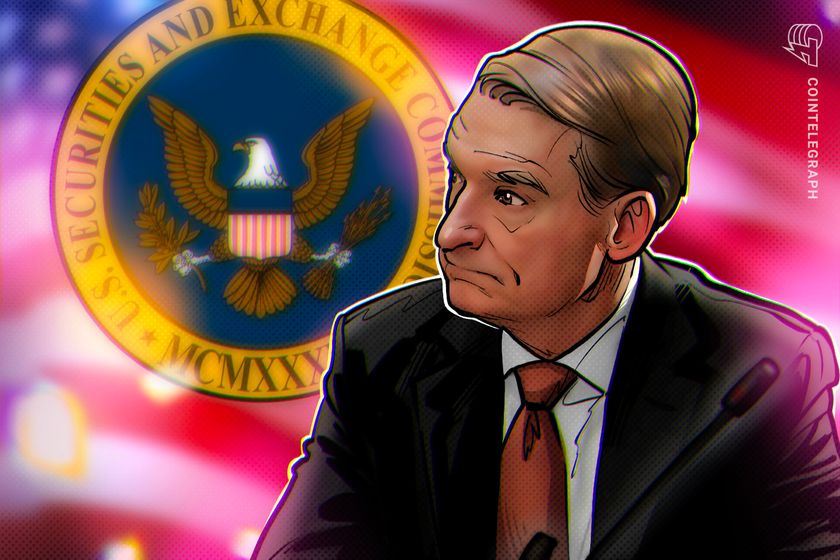

The crypto industry is bracing for a significant shift in regulatory tone following Paul Atkins’ swearing-in as chair of the US Securities and Exchange Commission on April 21. A former SEC commissioner with deep roots in deregulatory philosophy, Atkins replaces Gary Gensler, whose combative stance toward crypto defined much of the agency’s recent legacy.
In the latest episode of Byte-Sized Insight with Cointelegraph, key industry figures weigh in on the implications of this leadership change and what it might unlock for innovation, investment and clarity for digital assets.
Crypto’s “golden age” continues
Chris Perkins, president of CoinFund, spoke with host Savannah Fortis and described his excitement regarding the new SEC chair, predicting a reduction in regulatory uncertainty under the new administration.
“We were under this regulatory reign of terror, you know, under the Biden administration,” said Perkins. “Investors in assets, they’re very comfortable taking market risk… but they’re not comfortable taking reputational risk, and along with that is regulatory risk.”
He pointed out how it was not only investors and companies who were nervous under the last administration, but also developers in the crypto space who had been targeted for their work.
Perkins highlighted how a shift in the regulatory climate could catalyze growth.
“Now, again, you’re taking that personal liability off… So in a way, you have this perfect storm of new institutional capital coming in and new developers coming in. And I think the this is going to be a golden age for venture and value creation.”
Related: Paul Atkins’ loosely linked RSR token rises 13% after Coinbase listing
Katherine Dowling, general counsel and chief commercial officer at Bitwise Asset Management, agreed that change is already visible.
“The mood has already changed,” she said. “We’ve seen a flurry of activity around certain legal cases… being dismissed, dropped… not because all regulation is going away… but because more work needs to be done to define what these digital assets are.”
Dowling emphasized that the shift is about clarity, not deregulation.
“It’s a signal shift towards let’s take a step back and define what these are, what they look like, and how they should be regulated.”
What to expect from the Atkins era
James Gernetzke, chief financial officer of Bitcoin and crypto wallet Exodus, added that “the promise of being able to engage with a regulator on a reasonable basis… is going to be very helpful.”
Gernetzke said he expects a return to “more normal time frames” for IPOs and access to capital markets.
“I think the IPO rush… you will see probably towards the end… maybe months 10, 11, 12… it’s coming for sure.”
Perkins captured the broader sentiment, calling the incoming market structure bill a potential unlock.
“This market structure bill is going to have a really big impact… because then I know what my asset is, and I have a process for capital formation. I have a process for disclosures… It’s going to be awesome.”
Listen to the full episode of Byte-Sized Insight for the complete interview on Cointelegraph’s Podcasts page, Apple Podcasts or Spotify. And don’t forget to check out Cointelegraph’s full lineup of other shows!
Magazine: SEC’s U-turn on crypto leaves key questions unanswered



